
Jalal Shatah
Collaboration director
Jalal Shatah is Silver Professor of Mathematics at Courant Institute, NYU. He received his PhD in applied math from Brown University in 1983, when he joined NYU’s Courant Institute of Mathematical Sciences as post doctoral researcher, ultimately becoming professor of mathematics in 1993, and chairing the Department of Mathematics from 2003 to 2008.
Jalal Shatah’s research focuses on the problem of global existence and asymptotic behavior of small solutions to nonlinear hyperbolic and dispersive equations. This area of research governs a wealth of physical phenomena, from the very large scale to very small scale, and from fluids to solids. Dr. Shatah has brought new mathematical ideas to bear on these questions, in particular from dynamical systems, differential geometry, and harmonic analysis. His work has brought fundamental insights on the decay of waves (like ripples on a water surface) and the stability of complex structures (such as a tsunami crossing the ocean). His research contributions to analysis and Partial Differential Equations have opened up new approaches to difficult problems.
Professor Shatah is a fellow of the American Academy of Arts and Sciences and a recipient of a Sloan Research Fellowship, a Presidential Young Investigator Award, and numerous National Science Foundation grants.
Contact info: shatah@cims.nyu.edu
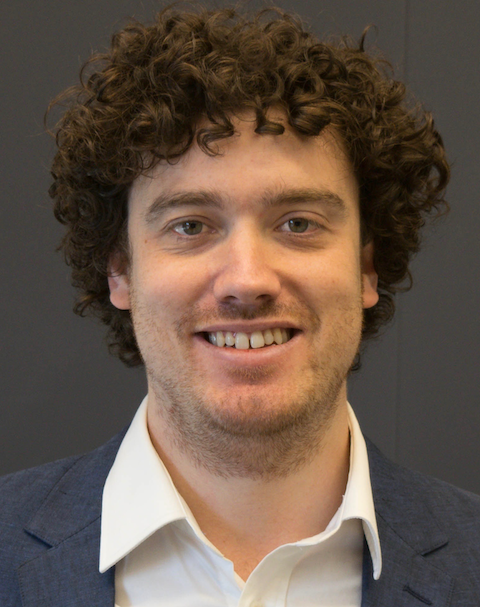
Tristan Buckmaster
Tristan Buckmaster is an Assistant Professor of Mathematics at Princeton University. He completed his PhD at the University of Leipzig/Max Planck Institute for Mathematics in the Sciences, Leipzig, Germany in 2014. He then spent three years as a Courant Instructor at New York University, and was subsequently appointed an Assistant Professor at Princeton University in 2017.
His main area of interest is partial differential equations with a particular focus on equations related to hydrodynamics. Together with his collaborators, he has successfully applied the techniques of convex integrations in order to prove deep theorems in the mathematical theory of hydrodynamics. Of particular note, together with Vicol, he proved the non-uniqueness of weak solutions to the Navier-Stokes equations. He has also played a key role in resolving a famous conjecture of Onsager in 1949. The conjecture concerns anomalous dissipation, sometimes referred to as the zeroth law of turbulence.
Webpage: http://web.math.princeton.edu/~tjb4/

Oliver Bühler
Oliver Bühler is a Professor of Mathematics and Atmosphere Ocean Science at the Courant Institute, NYU. After studies in Germany and the US, he received his PhD in Applied Mathematics from Cambridge University in 1996. After a tenured lectureship at the University of St Andrews in Scotland from 1999-2001 he joined the Courant Institute in 2002.
His research focuses on the fundamental fluid mechanics of atmosphere ocean flows, with particular emphasis on wave motions and how they interact nonlinearly with each other and, in particular, with other forms of motion such as coherent vortices. This work typically involves asymptotic analysis, stochastic modeling, and targeted numerical simulation. Professor Bühler’s work in this area has produced fundamentally new ideas such as the discovery of previously unknown non-local interactions between waves and vortices that are well separated spatially. He is also an expert in the nonlinear breaking of waves, which is one of the few processes whereby new vorticity can be generated inside a fluid body. Applications of this work include wave breaking and wave-driven currents on beaches, angular momentum transport due to internal waves in the atmosphere, and modeling of deep ocean internal tide interactions with the sea floor. Recently, he has started investigating fundamental questions of two-dimensional and three-dimensional turbulence, which has produced new exact Helmholtz decomposition methods for observed power spectra and exact predictions for third-order structure functions.
Professor Bühler is on the faculty of the Geophysical Fluid Dynamics summer school hosted annually by the Woods Hole Oceanographic Society, he has written a research monograph published by Cambridge University press, and he is an Associate Editor of the Journal of Fluid Mechanics. He has received numerous research grants by the UK research councils, the National Science Foundation, and the Office of Naval Research.
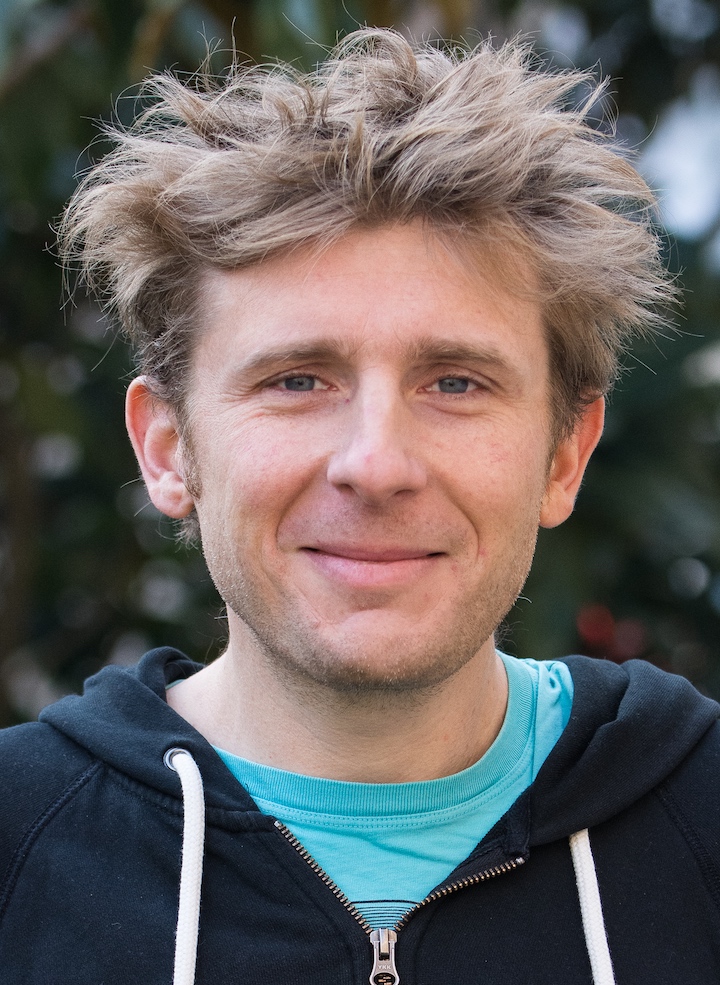
Laurent Chevillard
Laurent Chevillard is a member of the CNRS, researcher at the Ecole Normale Supérieure de Lyon (ENSL), France. He received his PhD in physics from Bordeaux University in 2004, was a postdoctoral fellow first in LEGI (Grenoble, France) and then at Johns Hopkins University (Baltimore, USA). He joined ENSL as a permanent researcher in 2007.
Laurent Chevillard research focuses on the physics of hydrodynamics turbulence, with a particular emphasis on the modeling of the intermittency, i.e. multifractal, phenomenon. He most recently developed new type of models for the Lagrangian evolution of the velocity gradient tensor, and made some probabilistic propositions that reproduce the intrinsically nonlinear and nonlocal structure of fluid turbulence, all models being strongly influenced by the dynamics provided by the Navier-Stokes equations.
Dr. Chevillard serves as a co-editor of Europhysics Letters, and is a member of the scientific committee of the French group of research on turbulence.
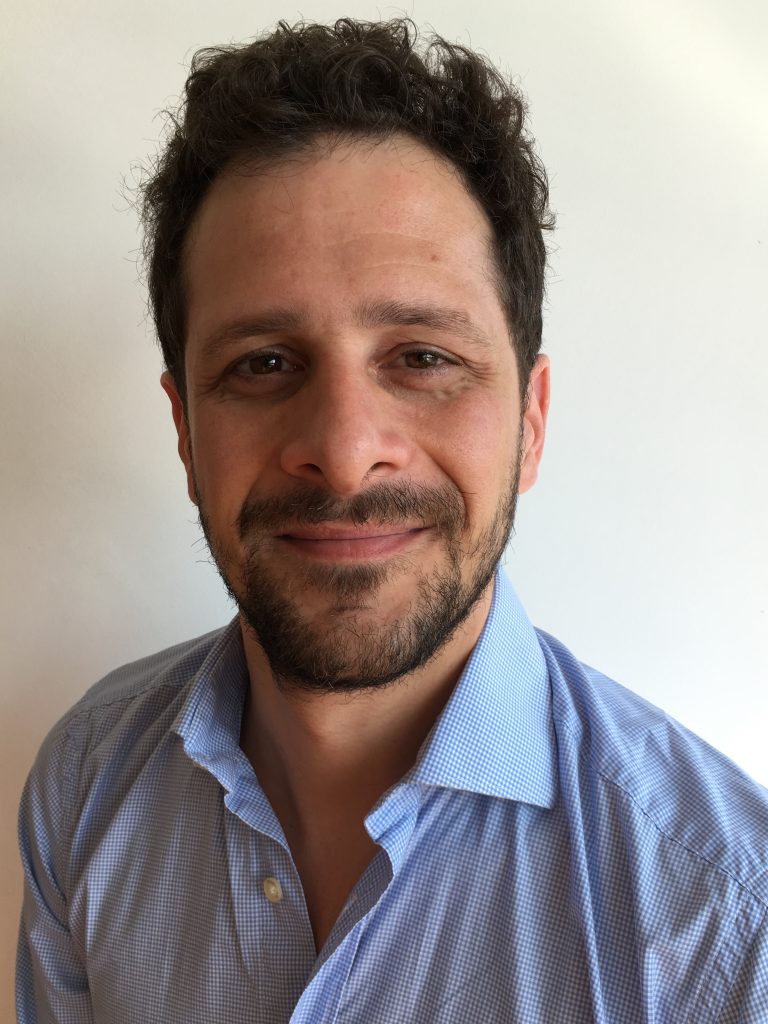
Pierre-Philippe Cortet
Pierre-Philippe Cortet is a CNRS researcher at laboratoire FAST (CNRS, Université Paris-Sud, Université Paris-Saclay) since 2009. He received his PhD in Physics in 2007 from Ecole Normale Supérieure de Lyon. From 2007 to 2009, he was a post-doctoral research fellow at CEA Saclay. Since 2009, he also teaches fluid dynamics at Ecole Nationale Supérieure de Techniques Avancées (ENSTA).
He is an experimentalist, specialist of fundamental problems in hydrodynamic turbulence, rotating fluid dynamics, adhesion of soft polymers and fracture mechanics. His recent works focus on turbulence influenced by global rotation, in particular regarding the question of the scale-to-scale energy transfers and the physics of inertial waves. His current research interests also include the mechanisms of energy dissipation during the debonding of soft polymer adhesives.
Pierre-Philippe Cortet is the scientific coordinator of a grant from the French Agence Nationale de la Recherche (ANR) and is or has been the PI at laboratoire FAST for three other ANR grants, in addition to several other grants from French local research agencies.
Webpage: http://www.fast.u-psud.fr/~ppcortet/
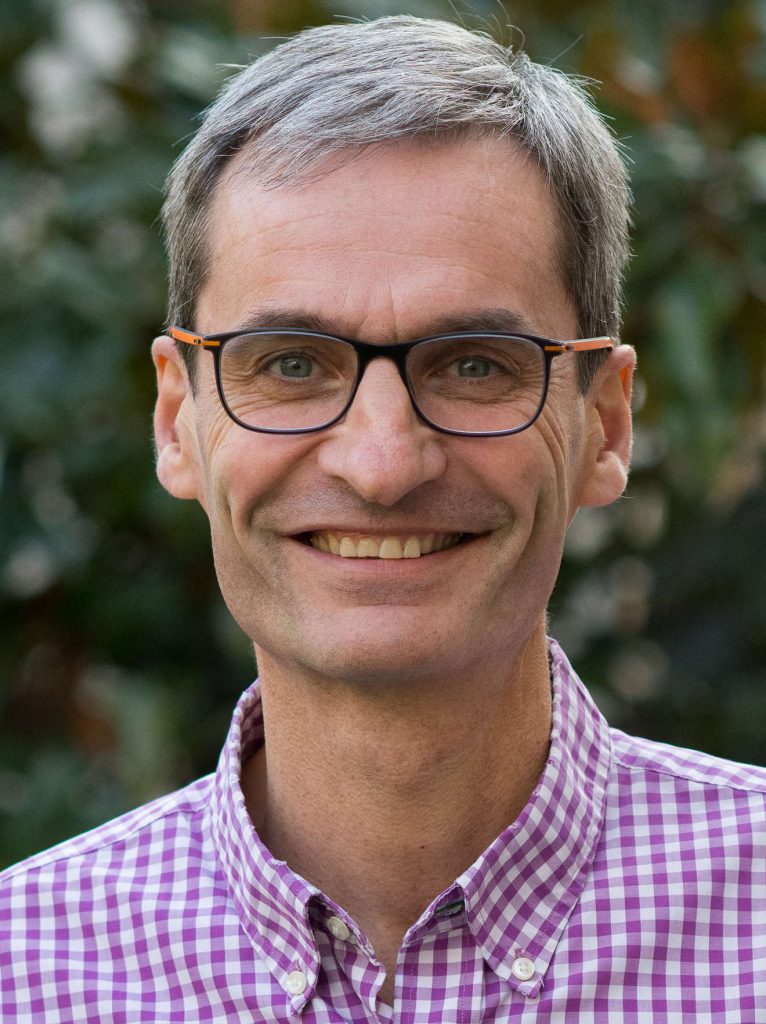
Thierry Dauxois
Thierry Dauxois is CNRS research director in the Laboratoire de Physique at ENS de Lyon. Student of Ecole Normale Supérieure de Lyon, France, he got his PhD degree in the University of Burgundy in 1993, after two long stays at Center for Nonlinear Studied from Los Alamos National Laboratory where he worked on the statistical mechanics and nonlinear dynamics of a model for DNA. In 1994, he was appointed as a CNRS research associate at ENS de Lyon. In 1996, he was a Marie Curie visiting scientist at Firenze University, Italy, where he worked on the Fermi-Pasta-Ulam-Tsingou problem and in 1997, he was a NATO fellow at Scripps Institution of Oceanography, San Diego, where he got interested in the critical reflection of internal waves.
His scientific interests are nonlinear dynamics and statistical mechanics in general with an emphasis on solitons, dynamical systems and chaos. He worked on different physical problems involving solitons and was also interested in physics of long-range interacting systems. Now he is particularly involved in the study of internal waves in stratified (sometimes rotating) fluids, from the theoretical and experimental point of views.
He has been director of French Research Society for Nonlinear and Statistical Physics (GDR Phenix) 2006-2009, President of CNRS Theoretical Physics Board 2010 2012 and since 2012 is Director of the Laboratoire de Physique at ENS de Lyon.
Webpage: http://perso.ens-lyon.fr/thierry.dauxois/
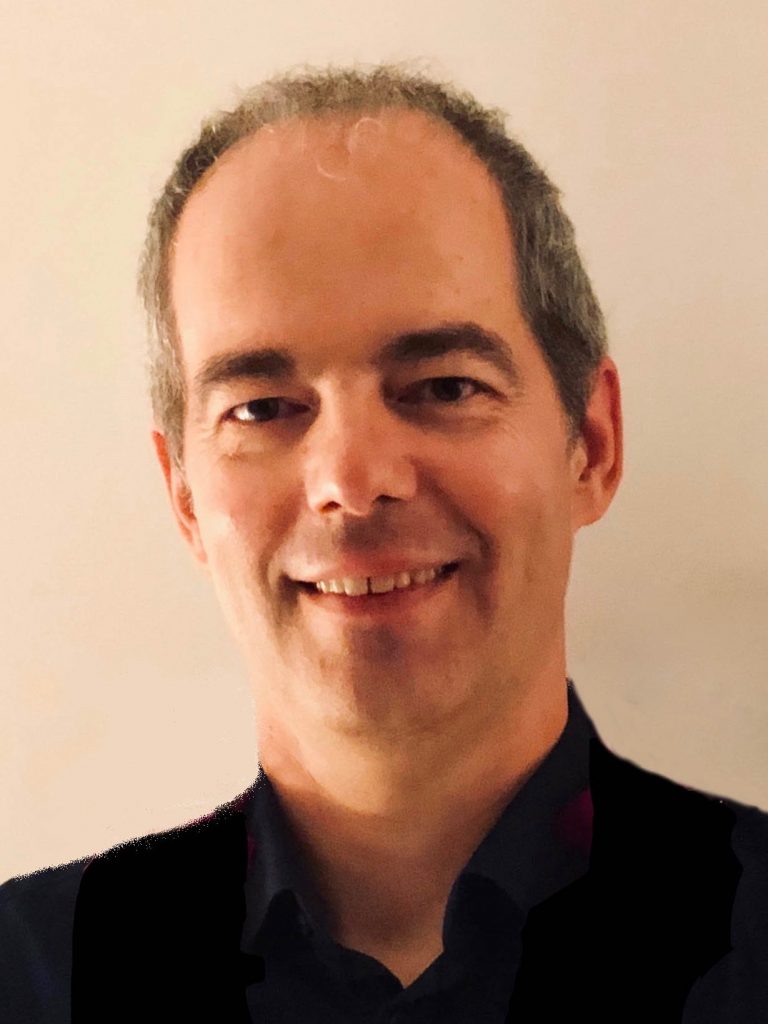
Eric Falcon
Eric Falcon is CNRS research director at University Paris Diderot. He received his PhD in Physics from Ecole Normale Supérieure (ENS) de Lyon in 1997. He then joined Ecole Normale Supérieure de Paris as a Postdoctoral Fellow. In 1999, he was appointed as CNRS research associate at ENS Lyon. In 2007, he joined the University Paris Diderot. He is currently President of the expert group in Matter Sciences of the French Space Agency (CNES) and coordinator of the Nonlinear Physics Conference in Paris since 2012.
His current research concerns experimental studies on nonlinear physics including wave turbulence, nonlinear waves, solitons, granular media, and instabilities in fluid mechanics. Since 2005, his research focuses on wave turbulence in different experimental systems (water surface waves, hydroelastic waves, or surface waves on magnetic fluid) in different facilities (laboratory- or large-scale basins, low- or high-gravity facilities). Some of his major contributions include the observations of gravity-capillary wave turbulence, intermittency in wave turbulence, and nonstationary wave turbulence.
He was the recipient of the CNRS Bronze Medal in 2001, of the Branly Prize in 2004, of the CNRS Scientific Excellence Reward in 2014 and 2018, and of several European or French funding grants in wave turbulence (Agence Nationale de la Recherche, European Space Agency). He is currently PI of an ESA instrument for International Space Station (ISS) dedicated to the study of granular media in low-gravity environment, and coPI of a CNES instrument onboard ISS to study wave turbulence in low gravity.
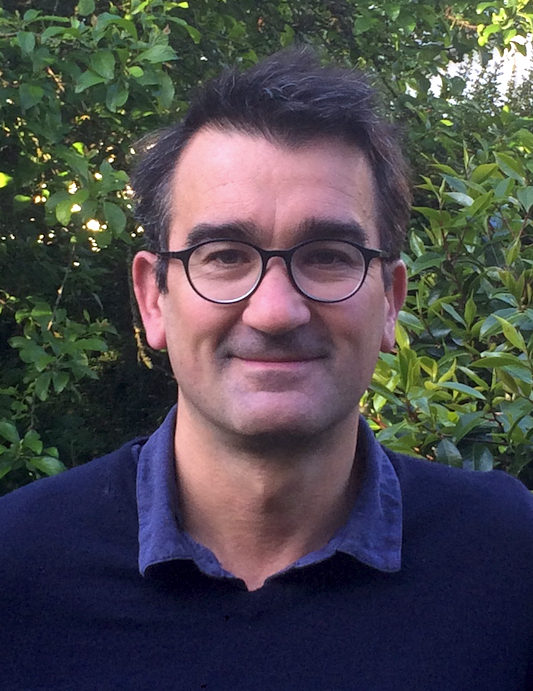
Erwan Faou
Erwan Faou is senior researcher at INRIA Bretagne Atlantique. He received his PhD in mathematics in the university of Rennes in 2000. After postdoctoral stays in the universities of Geneva and Tuebingen, he became junior researcher at INRIA and then senior researcher in 2014.
The main research of Erwan Faou focuses on numerical analysis, partial differential equations and stochastic analysis. Together with several collaborators, he obtained results concerning the long time behavior of numerical schemes applied to Hamiltonian partial differential equations in the context of Geometric Numerical Integration and structure preserving algorithms. In particular he extended the notion of modified energy and normal form theory to numerical schemes in infinite dimensional settings and for stochastic differential equations. He also obtained several results concerning the long time behavior of dispersive PDEs like Vlasov, Schroedinger and wave equations, with particular focus on normal form theory and specific phenomena coming from numerical discretization.
Erwan Faou was recipient of the Blaise Pascal prize in 2013 (French academy of Sciences) and the SIAM Germund Dahlquist prize in 2015. He was invited to a give the ETH Nachdiplom lecture in Zuerich in 2010, and obtained an ERC starting grant in 2011.
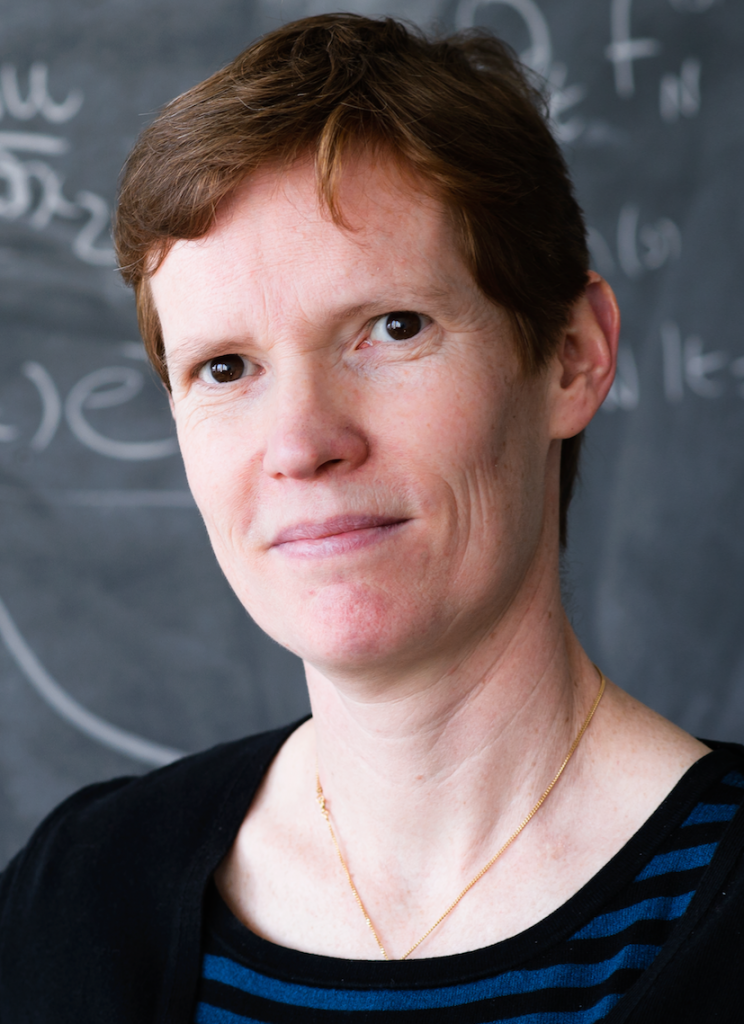
Isabelle Gallagher
Isabelle Gallagher is Professor of Mathematics at the École Normale Supérieure in Paris, on leave from Université Paris-Diderot. She received her PhD from Paris 6 University in 1998, when she joined the CNRS as researcher, first in Orsay University and then in the Ecole polytechnique, ultimately becoming Professor of Mathematics in 2004. She chaired the Mathematics Department of
Université Paris-Diderot from 2013 to 2017 and is currently chairing the Mathematics Department of the École Normale Supérieure in Paris.
Isabelle Gallagher’s research focuses on the mathematical analysis of Partial Differential Equations, and in particular in their derivation as well as in the description of their solutions. From the derivation point of view, she is in particular interested in the passage from the microscopic description of fluids to their macroscopic description. Another of her main areas of research is the study of qualitative properties of solutions : their departure from regularity, the growth of some norms, the existence and long time persistency of stable structures.
She was an invited speaker at ICM 2014 and ECM 2012, and the recipient of the CNRS Silver Medal in 2016.
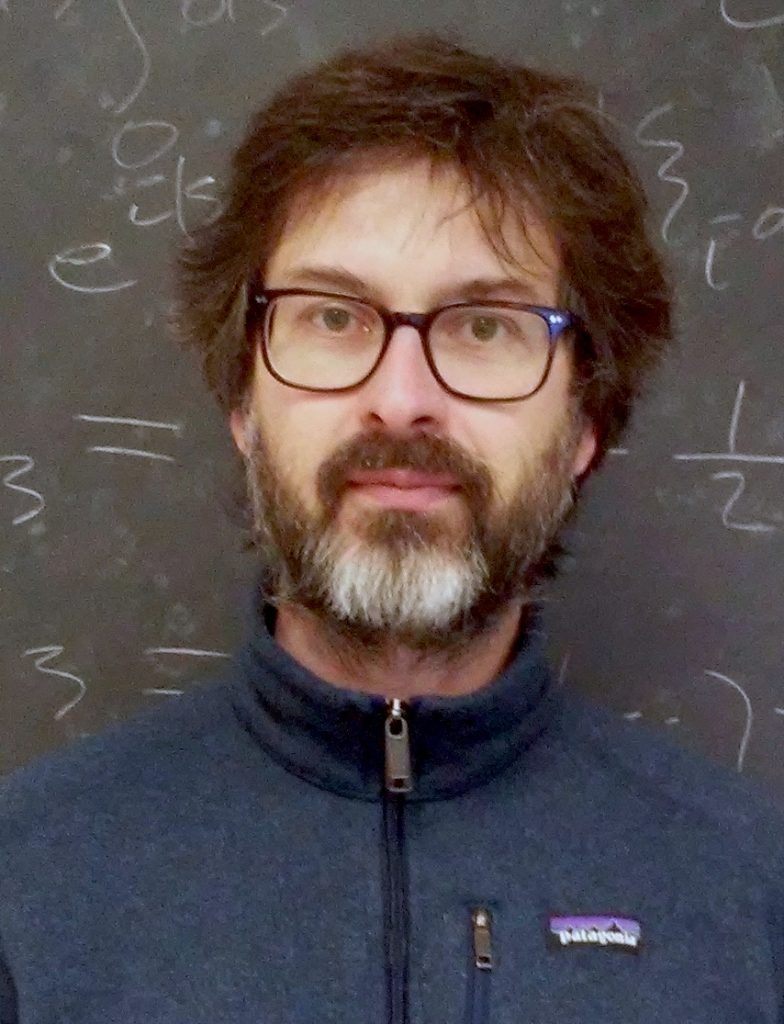
Pierre Germain
Pierre Germain is a Professor at the Courant Institute, New York University. He studied Applied Mathematics at the Ecole Polytechnique, and Engineering at the Ecole Nationale Superieure des Telecommunications. He earned his PhD in Mathematics in 2006 at the Ecole Polytechnique, under the supervision of Isabelle Gallagher. He then started as a postdoc at the Courant Institute, and has been a member of the Institute ever since, except for one year he spent at ETH Zurich.
His research focuses on evolution equations in Mathematical Physics, particularly Fluid Mechanics and Nonlinear Wave Equations. Harmonic Analysis is a central tool in his investigations. An important theme of his research has been the stability of specific equilibirum solutions of physical interest, such as shear flows in Fluid Mechanics, or solitons in Nonlinear Wave Equations.
He was a recipient of the Sloan Fellowship.
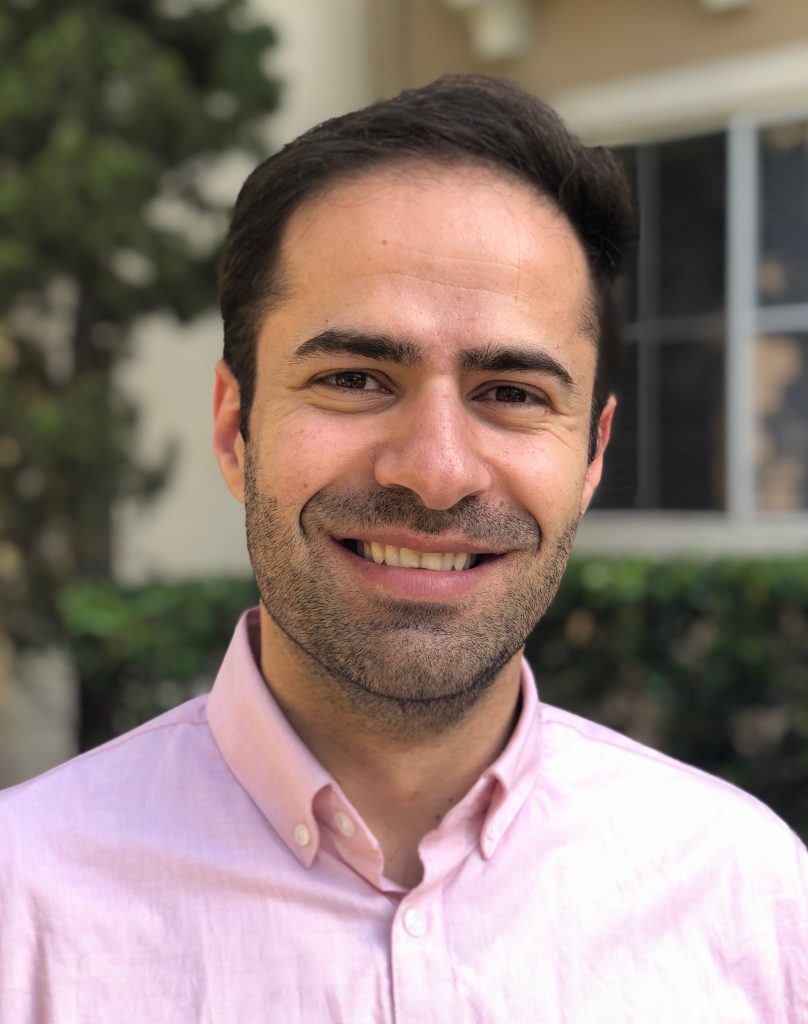
Zaher Hani
Zaher Hani is an associate professor of Mathematics at the University of Michigan, Ann Arbor. He received his PhD in 2011 from UCLA, after which he spent three years at the Courant Institute of Mathematical Sciences as a Courant Instructor and Simons Postdoctoral Fellow. In 2014, he joined Georgia Tech as an assistant professor, before moving to the University of Michigan in 2018. His research studies questions related to the long-time behavior of solutions to evolution equations coming from mathematical physics, with a particular focus on nonlinear dispersive and wave PDE. In the past few years, he has been working on developing a mathematically rigorous approach to the statistical physics of dispersive and wave systems. This includes questions of energy cascades, as well as deriving effective equations for the long-time dynamics of dispersive systems, including ones suggested by wave turbulence theory.
He is a recipient of a Sloan Research Fellowship, an NSF CAREER award, and National Science Foundation grants.
Contact info: zhani@umich.edu
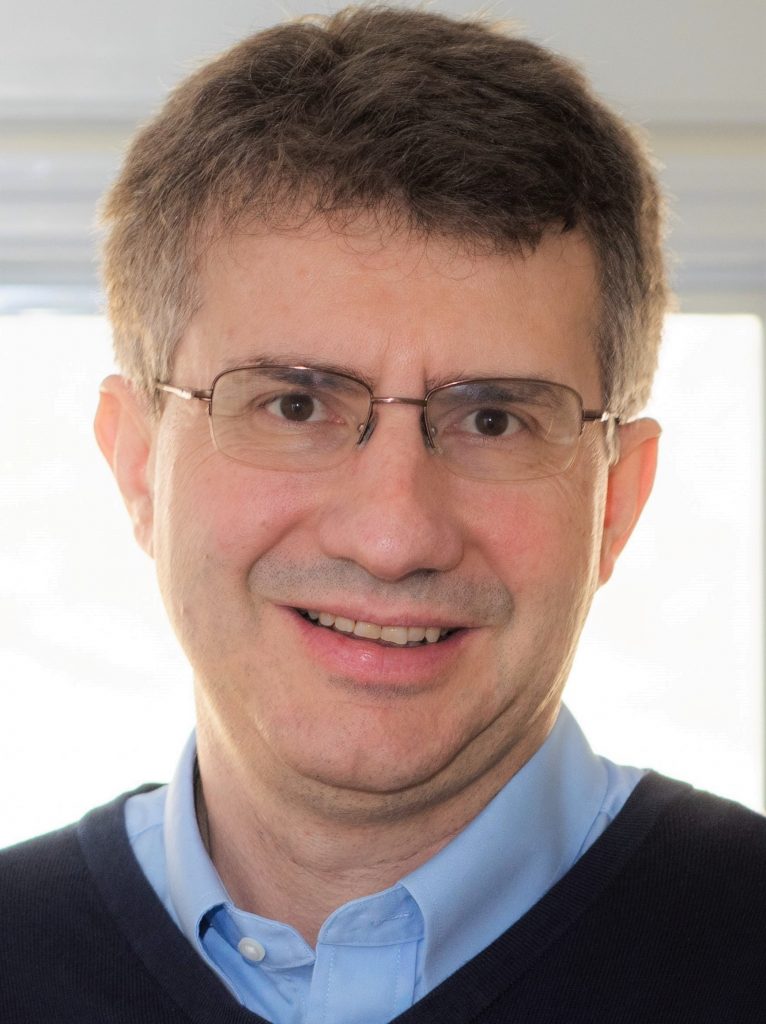
Alexandru Ionescu
Alexandru Ionescu is a Professor of Mathematics at Princeton University. He received his PhD in Mathematics from Princeton University in 1999. After post-doctoral positions at the Institute for Advanced Study and Massachusetts Institute of Technology, he joined the University of Wisconsin – Madison as an Assistant Professor in 2002. In 2010 he returned to Princeton University as a Full Professor of Mathematics.
Ionescu’s research is mainly concerned with the long term and global analysis of solutions of evolution Partial Differential Equations. This is a vast area of research, including the equations of Fluid Mechanics, dispersive equations such as Schrodinger equations, and hyperbolic equations such as the Einstein equations of General Relativity. Using new analytical methods, coming mostly from Fourier and Harmonic Analysis, Dr. Ionescu has made several key contributions to the global stability theory and asymptotic analysis of certain physical solutions. His recent work concerns fluid models, such as water-waves or plasma models, and models coming from General Relativity, such as the Einstein-Klein-Gordon system.
Professor Ionescu is a Fellow of the American Mathematical Society. He was awarded a Alfred P. Sloan Research Fellowship (2003), a Packard Fellowship in Science and Engineering (2004), and his research has been supported over the years by several National Science Foundation grants.
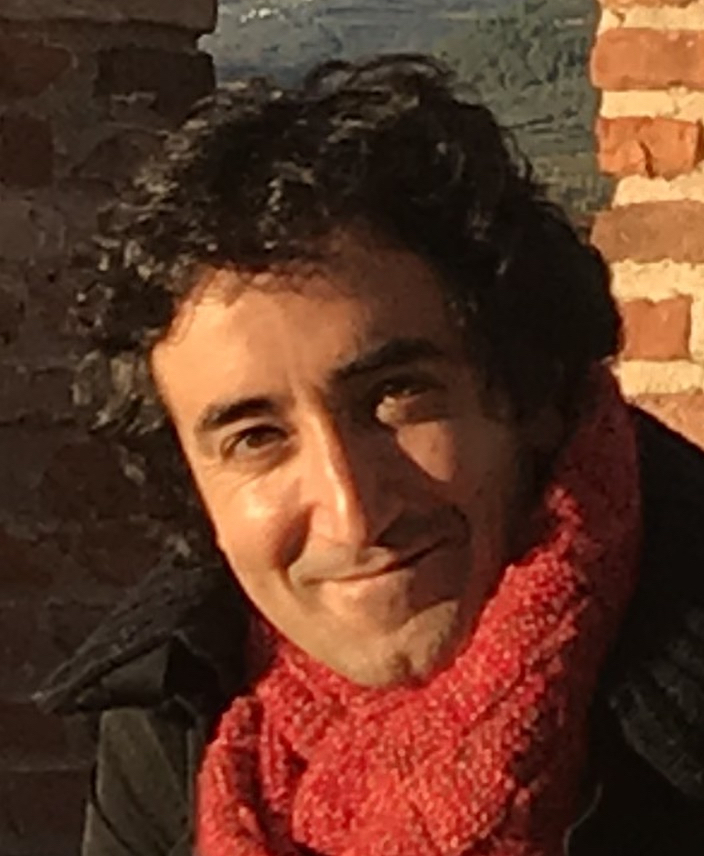
Giorgio Krstulovic
Giorgio Krstulovic is CNRS researcher at Laboratoire J.L. Lagrange of Université Côte d’Azur – Observatoire de la Côte d’Azur. He received his Ph.D. degree in Université Pierre et Marie Curie – Paris VI in 2010. In 2013 he was appointed as a CNRS researcher at Laboratoire J.L. Lagrange.
His present research interests are mainly focused on hydrodynamic turbulence, vortex dynamics, wave turbulence, and superfluid dynamics. In general, he is interested in statistical mechanics, nonlinear science and theoretical aspects of turbulence. Over the last years he has been very active in the field of superfluid turbulence, in particular contributing to the understating of propagation of waves along vortex filaments and reconnections of superfluid vortices. In parallel, he got interested in the field of non-linear waves and wave-turbulence.
Giorgio Krstulovic is the PI of grant from the French Agence Nationale de la Recherche (ANR). His research has been also supported by several scientific exchange programs between France and different countries (Chile, Ireland and United Kingdom).
Website: http://www.oca.eu/krstulovic
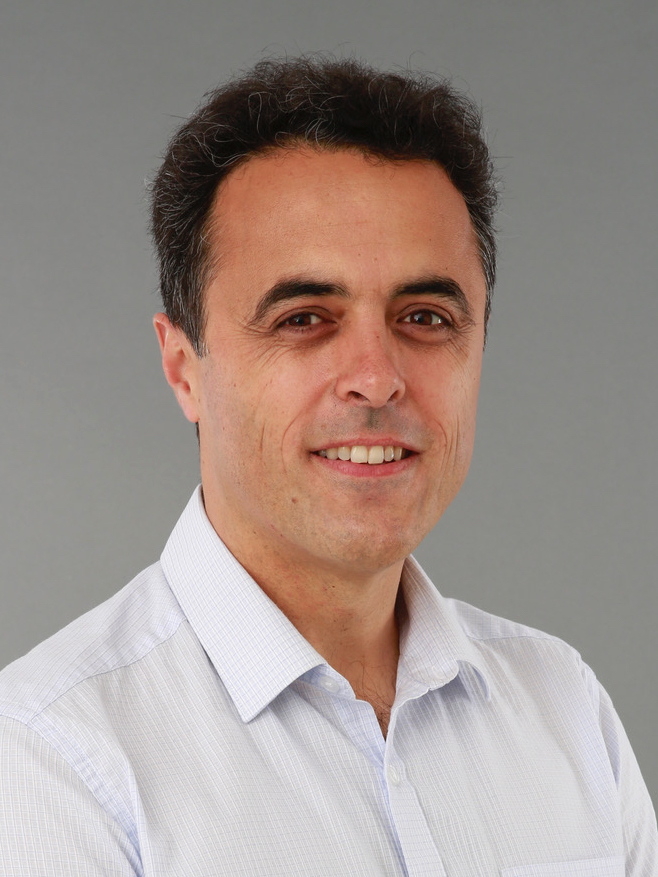
Nicolas Mordant
Nicolas Mordant is Professor of Mechanical Engineering in Université de Grenoble Alpes, France. He received his PhD in Physics in Ecole Normale Supérieure de Lyon in 2001. He then joined the LASSP at Cornell University as a post-doctoral associate and became Maître de Conférence at the Physics Department of Ecole Normale Supérieure de Paris in 2003. He then moved to Grenoble to join the Laboratoire des Ecoulements Géophysiques et Industriels (LEGI) in 2011. He is deputy director of LEGI since 2019 and member of the French Comité National de la Recherche since 2016.
Nicolas Mordant’s research concerns several sorts of turbulence, mostly from an experimental point of view. He started to work on the Lagrangian approach of fluid turbulence by devising several pioneering systems to track particles in turbulent flows so that to characterise the statistical properties of the acceleration field. Later he was also interested in Magnetohydrodynamics turbulence, specifically the dynamo effect. As a member of the VKS collaboration, he observed the growth of a magnetic field excited from a turbulent flow of liquid sodium. The most spectacular result was the first observation of reversals of the dynamo field in a way that shares many similarities with the reversal of the Earth’s magnetic field. More recently, Nicolas Mordant got interested in the field of wave turbulence by studying several wave systems such as elastic waves, water surface waves or internal waves in stratified flows. A major contribution was to setup time and space resolved measurements of these waves so that to get access to unprecedented statistics of this sort of turbulence.
Professor Mordant is a recipient of a Consolidator Grant by the European Research Council and of several French grants (Agence Nationale de la Recherche, Fondation Del Duca) for research on turbulence. He was a junior fellow of the Institut Universitaire de France (2011-2016).
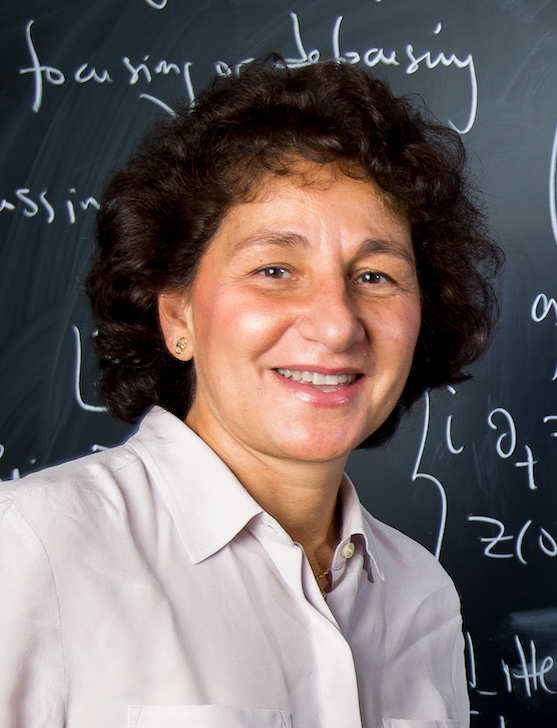
Andrea R. Nahmod
Andrea R. Nahmod is Professor of Mathematics at the University of Massachusetts Amherst. She received her PhD degree in mathematics from Yale University in 1991 under the supervision of Ronald R. Coifman. After postdoctoral positions at Macquarie University, Sydney Australia and at the University of Texas at Austin she joined the faculty at the Department of Mathematics and Statistics at the University of Massachusetts Amherst in 1998. Nahmod was twice member of the Institute for Advanced Study at Princeton (1997-1998; 2003-2004) and she was a Simons’ Professor at MSRI, Berkeley (Fall 2015).
Andrea Nahmod’s research lies at the interface of two interrelated fields: nonlinear Fourier and harmonic analysis, and the theory of partial differential equations modeling wave propagation phenomena. Nahmod has made fundamental contributions to the understanding of bilinear singular pseudo-differential operators. Additionally, she has done work that has contributed to the understanding of the dynamics of nonlinear waves arising in several domains – geometry, ferromagnetism, and gauge field theories. Over the past thirteen years, Nahmod has been leading research at the forefront of non-linear PDEs aimed at gaining a quantitative understanding of the effect of randomness in the dynamical evolution of nonlinear waves in various regimes. In particular, she has worked on invariant measures for Hamiltonian PDEs.
Professor Nahmod is a Fellow of the American Mathematical Society and a recipient of the Sargent-Faull Fellowship at Harvard’s Radcliffe Institute for Advanced Study (2009-2010), and a Simons Fellowship (2013-2014). Nahmod is also the recipient of the 2016 Award for Outstanding Accomplishments in Research and Creative Activity at the University of Massachusetts Amherst.

Sergey Nazarenko
Sergey Nazarenko is a CNRS Director of Research (class 1) and head of the Nonlinear and NonequilibriumPhysics team at the Institute de Physique de Nice. PhD from Landau Institute of Theoretical Physics, 1991.
Sergey’s research areas include Wave Turbulence in various physical settings: superfluids and Bose-Einstein condensates, astrophysics and laboratory plasmas, geophysical fluids, general relativity. Selected contributions: description for PDFs of wave amplitudes in Wave Turbulence, spectrum of MHD turbulence, theory of self-regulating Rossby/drift wave turbulence and zonal jets, theory of small-scale superfluid turbulence including Kelvin wave turbulence and the bottleneck at the intervortex scale, Wave Turbulence theory for gravitational wave for explaining early Universe expansion.
Current awards: Chaire d’Excellence IDEX Universite of Cote d’Azur, 2 EU Marie Curie Horizon 2020 action projects: Hydrodynamic approach to Light Turbulence and Photons for Quantum Simulation (these projects support my studies of optical and BEC wave turbulence).
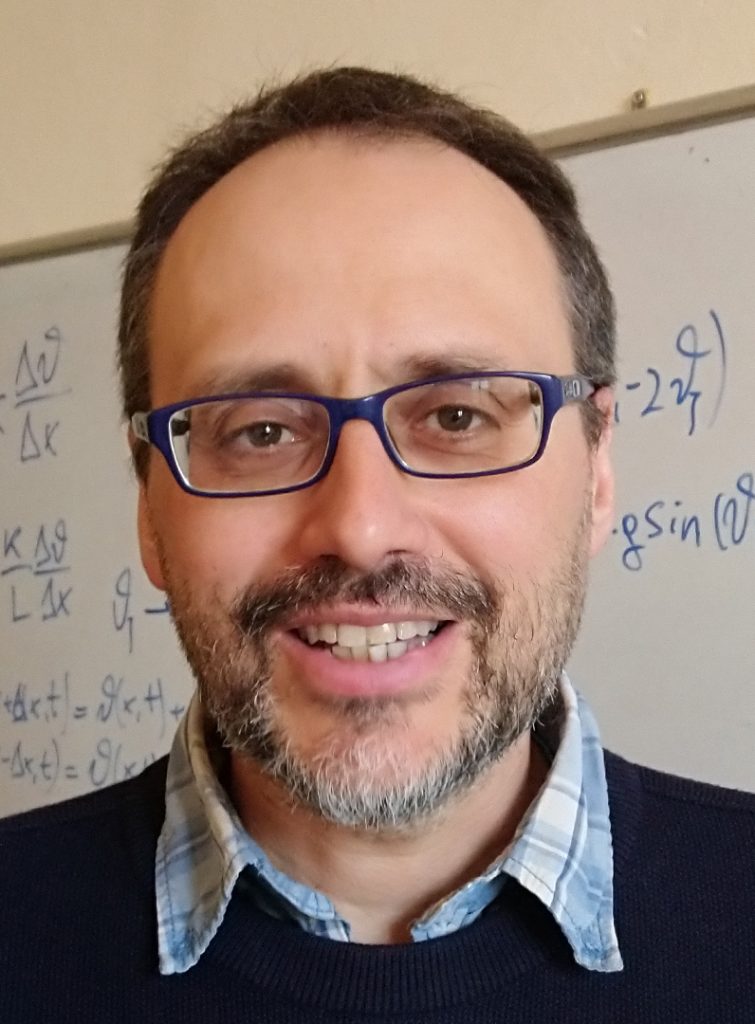
Miguel Onorato
Miguel Onorato is an Associate Professor at Physics Department of the University of Torino (Italy). He graduated in Physics at the University of Torino and obtained a PhD in Fluid Mechanics from the Politecnico of Torino.
His research focuses on the dynamics of nonlinear waves and turbulence, with applications ranging from ocean waves, to nonlinear optics and to Bose Einstein condensates. He has given very important contributions to the understanding of the statistical properties of ocean waves, and more in particular, to the understanding of the mechanism of formation of rogue waves.
He published more than100 papers (highly cited, h-factor=43 from Google Scholar) in international journals. He is in the Editorial Board of the Journal of Fluid Mechanics, the most prestigious journal of the field. He has led different international projects with funding from the European Union and from the Italian Ministry of Research. He has been appointed visiting professor in Swinburne University (Australia), University of Science and Technology of Lille 1 (France), Katholieke Universiteit Leuven (Belgium), Université Pierre et Marie Curie (France).
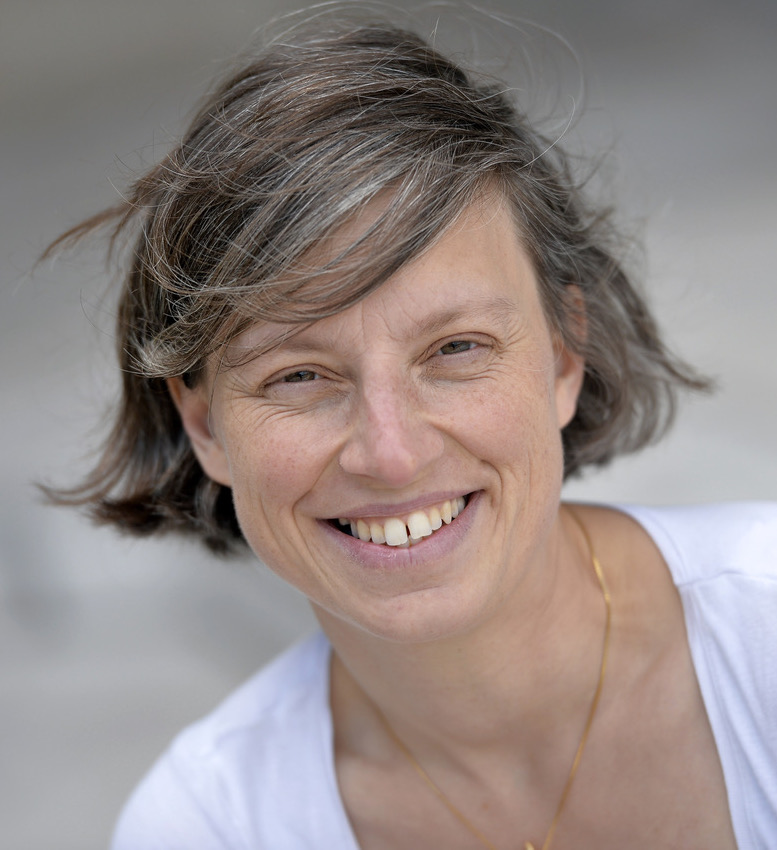
Laure Saint-Raymond
Torn between her taste for abstract theories and her wish to understand a little bit more the world surrounding us, Laure Saint-Raymond has studied mathematics and physics. She finally opted for applied mathematics, and got her PhD under the supervision of François Golse in 2000.
An important part of her work is related to the sixth problem raised by Hilbert in 1900 on the occasion of the International Congress of Mathematicians, which addresses the question of the axiomatization of mechanics, and more precisely of describing the transition between atomistic and continuous models for gas dynamics by rigorous mathematical convergence results. Laure Saint-Raymond has obtained major results concerning the asymptotic theory of the Boltzmann equation in kinetic theory of gases. She has also studied problems of scale separation in the context of geophysical flows, especially for the wind-driven oceanic dynamics.
Hired as a junior researcher at CNRS in 2000, she has been promoted Professor at University Paris 6 – Pierre et Marie Curie in 2002. She is currently Professor at the Ecole Normale Supérieure de Lyon, and Fellow of the Institut Universitaire de France. She has been awarded many prizes, among which the Prize of the European Mathematical Society in 2008, the Ruth Lyttle Satter Prize of the American Mathematical Society in 2009, and the Fermat Prize in 2015. She is a member of the French Academy of Sciences, the European Academy of Sciences and of the Academia Europae.
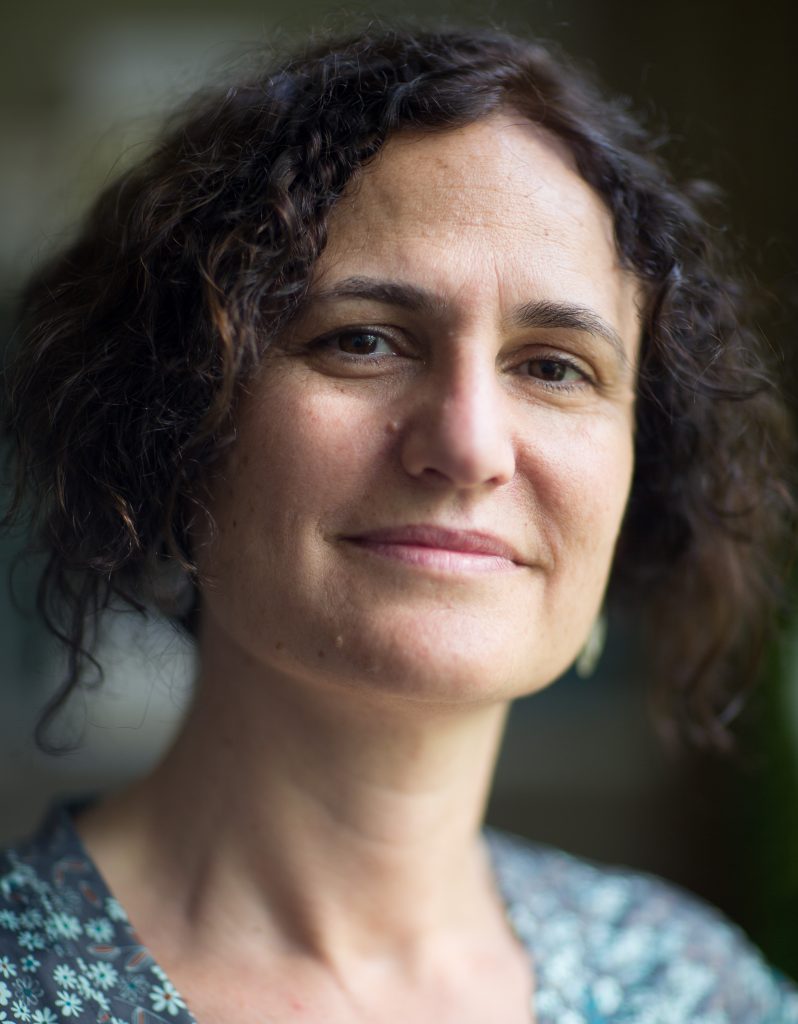
Gigliola Staffilani
Gigliola Staffilani is the Abby Rockefeller Mauze Professor of Mathematics at MIT since 2007. She received M.S. and Ph.D. degrees from the University of Chicago in 1991 and 1995 respectively. Following a Szegö Assistant Professorship at Stanford, she had faculty appointments at Stanford, Princeton and Brown, before joining the MIT mathematics faculty in 2002.
Gigliola Staffilani is an analyst and her research is on dispersive nonlinear PDEs. She is particularly interested on the long time behavior of periodic solutions to nonlinear Schrodinger equations. For these solutions in fact she is investigating questions related to energy transfer and forward cascade, concepts strictly related to weak turbulence theory. In recent years Gigliola has introduced concepts borrowed from probability theory in oder to establish results, such as well-posedness for certain Schrodinger equations at very low regularity, that are “generically” true.
While at Stanford, Gigliola received the Harold M. Bacon Memorial Teaching Award in 1997, and was given the Frederick E. Terman Award for young faculty in 1998. She was a Sloan fellow from 2000 to 2002. In 2013 she was elected member of the Massachusetts Academy of Science and a fellow of the AMS, and in 2014 fellow of the American Academy of Arts and Sciences. In 2017 she received a Guggenheim fellowship and a Simons Fellowship in Mathematics. As a member of the MIT Math Department’s edX group, Gigliola received the inaugural MITx Prize for Teaching and Learning in MOOCs by the MIT Office of Digital Learning. In 2018, Gigliola received the Earll M. Murman Award for Excellence in Undergraduate Advising, by the MIT Presidential Task Force on the Undergraduate Educational Commons.
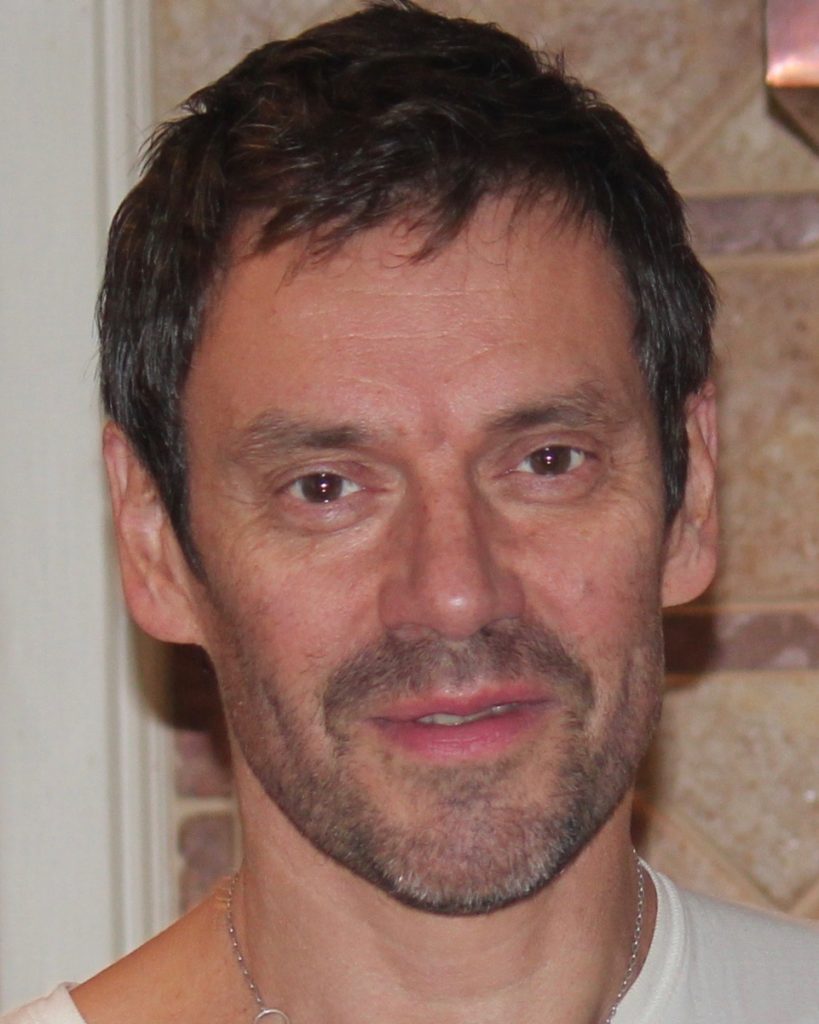
Eric Vanden-Eijnden
Eric Vanden-Eijnden earned his doctorate in 1997 from the Université Libre de Bruxelles, then moved to the Courant Institute, NYU, where he has been Professor of Mathematics since 2003. He also held visiting positions at the Institute for Advanced Study in Princeton, the Miller Institute at the University of California, Berkeley, and Trinity College at Cambridge University.
Vanden-Eijnden’s work focuses on the theoretical and computational aspects of Non-Equilibrium Statistical Mechanics and Applied Probability, with applications to biomolecular systems, chemical and biological networks, materials science, atmosphere-ocean science, and fluids dynamics. He has contributed to the development and analysis of multiscale numerical methods for systems whose dynamics span a wide range of spatio-temporal scales.
Vanden-Eijnden received a Sloan Fellowship in 2002 and a NSF Career award in 2003. He was the recipient of the 2009 Germund Dahlquist Prize from the Society for Industrial and Applied Mathematics (SIAM) and the 2011 J. D. Crawford Prize from SIAM SIAG/Dynamical Systems. He was a plenary speaker at the 2015 International Congress of Industrial and Applied Mathematics (ICIAM) in Beijing.
Collaboration Scientists
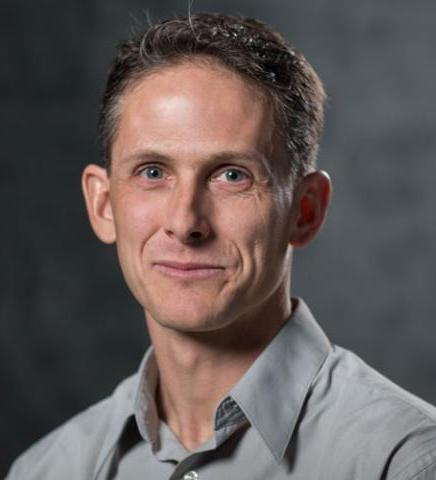
Jeffrey Banks
Jeffrey Banks received his Ph.D. in applied mathematics from RPI in 2006. Subsequently he completed postdoctoral appointments at Sandia National Laboratories in Albuquerque, New Mexico, and Lawrence Livermore National Laboratory in Livermore, California. In 2010 he was appointed as a staff scientist at LLNL where he remained until moving back to RPI. In January 2015 he was appointed associate professor in the Department of Mathematical Sciences where he holds the Eliza Ricketts Foundation Career Development Chair.
Dr. Banks is interested in computer simulation of time evolving partial differential equations where linear or nonlinear wave phenomena play a central role. His research involves the development and analysis of highly accurate and efficient algorithms for the numerical simulation of physical systems such as high-speed fluid dynamics, solid mechanics, electromagnetics, plasma physics and fluid-structure interaction. Current interests include systems involving light propagation through metamaterials and laser-plasma interaction. In addition, he is the primary developer of the LOKI code for plasma physics, which is a high-order accurate solver for the kinetic Vlasov equation in 2-space and 2-velocity dimensions plus time. LOKI is highly scalable using MPI and is routinely run on some of the largest supercomputers in the world.
Jeff Banks is the recipient of the Presidential Early Career Award for Scientists and Engineers in 2011. He has also received funding from the US Department of Energy, US Department of Defense, US National Science Foundation, Lawrence Livermore National Laboratory, and Defense Advanced Research Projects Agency.
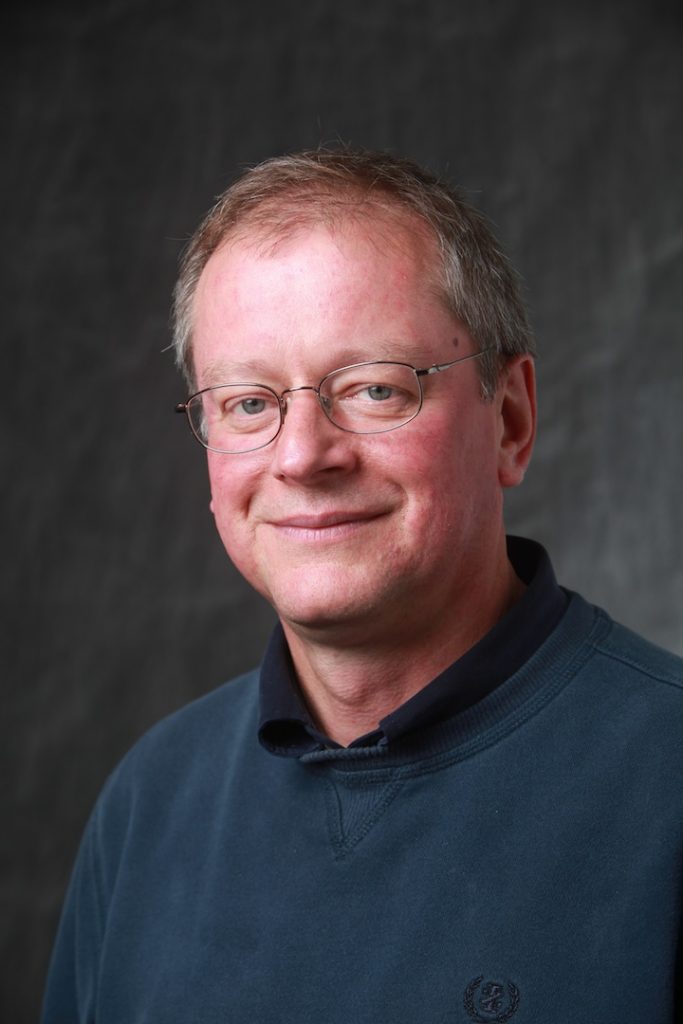
Gregor Kovačič
Gregor Kovačič received batchelor’s degrees in Physics and Mathematics from the University of Ljubljana, Slovenia in 1985, and a Ph.D. in Applied Mathematics from California Institute of Technology in 1990. He was a Postdoctoral Fellow at the Los Alamos National Laboratory before joining the Mathematical Sciences Faculty at Rensselaer Polytechnic Institute in 1991. He has been a Professor since 2011. Gregor visited Courant Institute in 2000/01, 2003/04 and Spring of 2008. He is a steering committee member of the Center for Modeling, Optimization and Computational Analysis (MOCA) at Rensselaer.
Gregor’s current research interests include studies of nonlinear evolution equations and their scientific applications, particularly in dispersive waves, optics, and neuroscience. Recently, he has been exploring dynamics and statistics of dispersive wave-like and completely integrable partial differential equations and their applications to nonlinear resonant optics, light propagation through “metamaterials” with exotic properties of the refractive index, and the modeling of and dynamics in neuronal networks. His recent contributions to wave turbulence include identifying effective dispersion relations in systems with moderate and strong nonlinearities, finding Kolmogorov-Zakharov spectra in highly symmetric systems, and a stochastic model of weakly-turbulent systems.
Gregor is the recipient of the Prešeren’s Student Prize in Slovenia in 1985, a Director’s Funded Postdoctoral Fellowship at Los Alamos in 1989, an NSF Career Award in 2005, and a Sloan Research Fellowship in 2006. He has also received National Science Foundation, US Department of Energy, and DARPA grants.
Website: https://science.rpi.edu/mathematical-sciences/faculty/gregor-kovačič
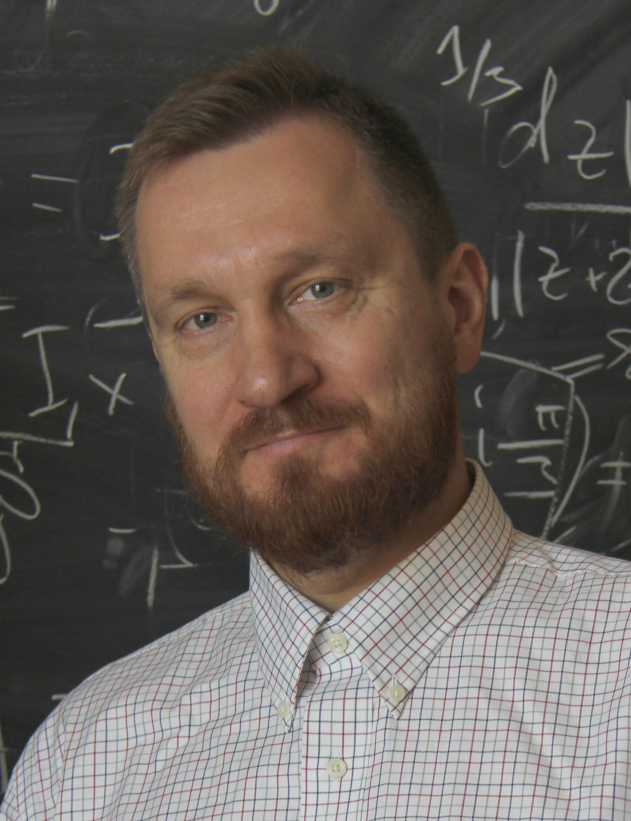
Alexander O. Korotkevich
Alexander O. Korotkevich is an Associate Professor of Mathematics at the University of New Mexico, Albuquerque, NM, USA. He received B.S. and M.S. in Applied Mathematics and Physics from the Moscow Institute of Physics and Technology, Russian in 1996 and 1999. His Ph.D. in Physical and Mathematical Sciences (Applied Mathematics and Theoretical Physics) was defended at the L.D. Landau Institute for Theoretical Physics, Russian Academy of Sciences, in 2003. He was a Visiting Assistant Professor of Mathematics at the Department of Mathematics, the University of Arizona, Tucson, AZ, USA before joining the Department of Mathematics and Statistics at the University of New Mexico in 2009 as a faculty member. He has been an Associate Professor of Mathematics since 2013.
Alexander Korotkevich’s research interests belong mostly to numerical simulation of nonlinear waves in different media, including water waves, fiber optics, laser fusion and space plasma, active optical media and metamaterials. His major results are in the computational modelling of wave
turbulence of gravity waves on the surface of oceans and lakes, namely simulation of direct cascade of gravity waves, decaying turbulence, inverse cascade of gravity waves. Recently, he has been concentrating on investigation of Stokes waves and wave turbulence in the presence of long wave background (condensate) which is a typical setup for wave tank and numerical experiments. Recently Alexander made a contribution in simulation of natural gas transportation pipelines. Prof. Korotkevich specializes in record breaking computations utilizing different paradigms of parallel numerical methods.
Alexander was a laureate of several awards as a student and Presidential award of Russian Federation for young scholars. He was PI or Co-PI in several National Science Foundation grants.
Website: https://math.unm.edu/~alexkor/
